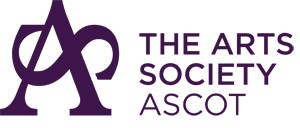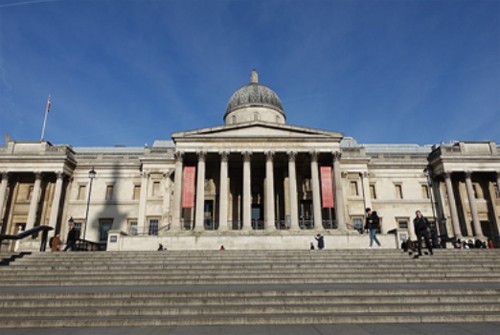We meet monthly on the mornings of the first Tuesdays (with a break in Summer) to enjoy a lecture on one of a thousand subjects. For details about us visit www.theartssocietyascot.org.uk - and for anything else you’d like to know, just ‘contact us’ through the website.
If you would like to come to one of our lecture meetings, (or ask anything else)
please email Teresa, our membership secretary, at membership.ascot@theartssociety.org .
Image credit: The National Gallery by Cris NYCA, CC BY-SA 4.0, via Wikimedia Commons
National Gallery in Ten Paintings with Professor Jonathan ConlinTuesday on April 2nd 2024
Founded in 1824, the National Gallery in London's Trafalgar Square houses one of the world's finest collections of European paintings, including such favourites as Jan Van Eyck's "Arnolfini Marriage", Sandro Botticelli's "Venus and Mars", John Constable's "Cornfield" and Vincent Van Gogh's Sunflowers. In contrast to its peers, however, this institution did not begin its life as a royal collection: the Gallery was founded by parliament and remains reliant on public funding. This lecture uses highlights from the NG's collection to show how our vision of the "ideal" art collection has evolved over time, along with ideas of the kinds of people the Gallery was supposed to serve.
Dr Jonathan Conlin is a cultural historian of modern Britain and Professor of Modern History at the University of Southampton. His books include "Tales of Two Cities" (2014), a comparative history of Paris and London, and biographies of Adam Smith and the Anglo-Armenian oil baron Calouste Gulbenkian. Born in New York, he studied History and Modern Languages at Oxford, subsequently moving to the Courtauld Institute and Cambridge for his MA and PhD. In 2023 he was commissioned by the National Gallery to write its bicentenary history. All his talks draw on his own archival research, allowing him to give audiences insights into how historians approach different kinds of evidence, the gaps and dead-ends as well as the surprise discoveries.
*******













